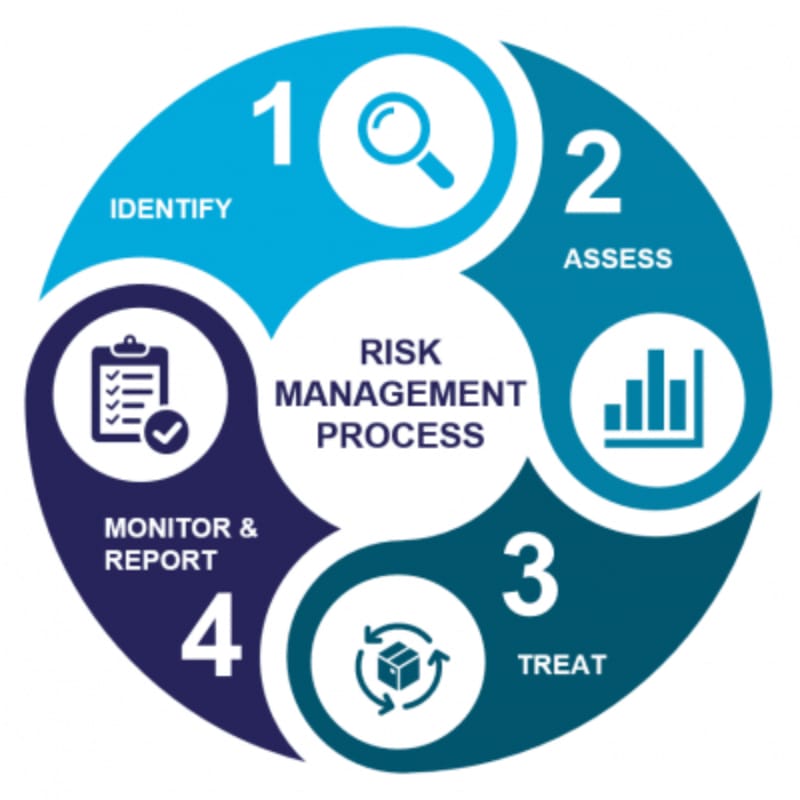How to Make Resilience Your Strategic Advantage

Change is the only constant in the business world, and with it comes challenges that demand resilience. For entrepreneurs and business owners, resilience isn't just about surviving tough times—it's about thriving amid chaos and uncertainty. True resilience means anticipating, preparing for, and responding to unexpected events, adapting to change, overcoming obstacles, and emerging stronger.
We will look into the core of business resilience and explore how to instill this crucial trait across your enterprise. From building a resilient workforce to strengthening operational and financial systems, we'll offer practical strategies to safeguard your business against the unexpected. Whether you're a new entrepreneur or a seasoned business owner, mastering resilience is key to securing long-term growth and success.
The Core of Business Resilience

Understanding Resilience in Business
Resilience is your shield and sword in the face of adversity. It's not merely about bouncing back from setbacks; it's about bouncing forward, using challenges as springboards for growth and innovation. For businesses, this resilience manifests in several forms – whether it's the flexibility in decision-making, the robustness of operational processes, or the ability to recover swiftly from financial hits.
But why is resilience so crucial? The answer lies in the unpredictability of the business environment. Market trends shift, consumer preferences change, technology evolves, and unforeseen events like economic downturns or global crises occur. In such a landscape, resilience is the key differentiator between businesses that thrive and those that struggle to survive.
Elements of Resilience
- Adaptability: Adaptability is the cornerstone of resilience. It's about being agile and responsive to changes in the market or operational environment. This means staying abreast of industry trends, being open to new ideas, and having the flexibility to pivot strategies when necessary.
- Robustness: Robustness in business refers to the strength and durability of your operational and organizational structures. It's about having systems in place that can withstand shocks and stresses. This includes everything from solid financial foundations to reliable supply chains and efficient operational processes.
- Recovery: The ability to recover quickly from setbacks is a hallmark of a resilient business. This involves not only having contingency plans in place, but also a culture that views failures as opportunities for learning and growth. It's about bouncing back stronger, with new insights and strategies forged in the fire of challenges.
In the following sections, we'll explore how to cultivate these elements of resilience in different areas of your business.
Building a Resilient Workforce

Empowering Employees
The resilience of any business is deeply rooted in its people. A resilient workforce is adaptable, innovative, and undeterred by challenges. To cultivate such a team, empowerment is key. This means providing employees with the tools, resources, and autonomy they need to make decisions and solve problems. Encourage a culture where taking calculated risks is valued, and learning from failures is the norm.
- Training and Development: Invest in continuous learning opportunities. This not only keeps your team updated with the latest industry skills but also instills a growth mindset that is essential for resilience.
- Communication and Transparency: Open and honest communication builds trust and ensures everyone is aligned with the company's vision and goals. In times of crisis, this transparency becomes even more critical, keeping the team united and focused.
Cultivating a Resilient Mindset
A resilient mindset within your workforce can be the difference between stagnation and growth during tough times.
- Encouraging Creativity and Innovation: Foster an environment where new ideas are welcomed and experimentation is encouraged. This paves the way for creative problem-solving and innovation, which are vital in navigating business challenges.
- Emotional Intelligence and Stress Management: Equip your team with emotional intelligence skills to manage stress and adapt to change effectively. Resilience is not just about coping with challenges, but also about maintaining mental and emotional well-being in the face of them.
- Team Building and Support Networks: Strong relationships and support networks within the team can be a significant source of resilience. Encourage collaboration and peer support, creating a sense of unity and collective strength.
By focusing on these areas, you can build a workforce that is not just skilled, but also emotionally and mentally equipped to handle the ups and downs of the business world.
Operational Resilience

Operational resilience is about ensuring that your business's core functions can withstand disruptions and continue to operate effectively. It's the backbone that supports your company during unexpected challenges.
Risk Management and Planning
Effective risk management is at the heart of operational resilience. It involves identifying potential risks, assessing their impact, and implementing strategies to mitigate them.
- Risk Assessment: Conduct regular risk assessments to identify vulnerabilities in your operations. This could range from supply chain disruptions to cybersecurity threats.
- Contingency Planning: Develop and maintain robust contingency plans for various scenarios. This includes having backup suppliers, emergency funding options, and disaster recovery plans for critical IT systems.
- Regular Reviews and Updates: The business landscape is constantly changing, and so should your risk management strategies. Regularly review and update your plans to ensure they remain relevant and effective.

Technology and Resilience
In the digital world, leveraging technology is key to enhancing operational resilience.
- Adopting Resilient Technologies: Invest in technologies that enhance operational efficiency and provide backup options in case of failures. Cloud computing, for instance, offers scalable and flexible resources that can be crucial in managing sudden spikes in demand or recovering from data loss.
- Cybersecurity Measures: Protecting your digital assets is crucial. Implement robust cybersecurity measures to safeguard against data breaches and cyberattacks.
- Digital Transformation: Embrace digital transformation not just as a means to improve efficiency but also as a resilience-building strategy. Automating processes and using data analytics can provide valuable insights for decision-making and risk management.
Operational resilience isn't just about surviving the storm; it's about maintaining course and continuing to deliver value to your customers, even under adverse conditions. By focusing on these aspects, you ensure that your business is prepared to face and overcome whatever challenges come its way.
Financial Resilience in Business

Financial resilience is crucial for any business to navigate through economic uncertainties and market fluctuations. It's about having the financial flexibility and resources to withstand and recover from setbacks.
Financial Planning for Uncertainty
Sound financial planning is the foundation of financial resilience. It involves understanding your financial position, planning for uncertainties, and setting up safeguards.
- Budgeting and Cost Management: Effective budgeting and cost management are vital. This includes regularly reviewing expenses, identifying areas for cost reduction, and optimizing resource allocation.
- Building Reserves: Establishing a financial buffer can help your business weather periods of financial stress. This means setting aside funds that can be accessed during emergencies or downturns.
- Cash Flow Management: Maintaining healthy cash flow is essential. This involves managing receivables and payables effectively, optimizing inventory levels, and ensuring access to credit facilities if needed.
Diversification and Revenue Streams
Diversifying your revenue streams can significantly enhance your business's financial resilience.
- Exploring New Markets: Look for opportunities to expand into new markets or customer segments. This can reduce dependence on a single market and spread your risk.
- Developing New Products or Services: Innovation can open up additional revenue streams. Consider developing new products or services that complement your existing offerings.
- Partnerships and Collaborations: Collaborating with other businesses can open up new opportunities and provide mutual support, especially in challenging times.
Financial resilience is not just about surviving tough times; it's about having the agility and resources to seize opportunities that arise even in adversity. By focusing on these financial strategies, you ensure that your business remains robust, adaptable, and ready for growth.
Final Thoughts
In a world where change is constant, resilience serves as a pillar of strength for entrepreneurs and business owners. We've explored various aspects of business resilience, from building a strong workforce and optimizing operational processes to ensuring financial stability. Each of these elements plays a key role in creating a business that can adapt, thrive, and prosper in the face of challenges.
Resilience is not a fixed trait but an ongoing process that demands continuous effort, assessment, and evolution. By encouraging adaptability, strengthening systems, and maintaining financial flexibility, you turn resilience into a strategic advantage. Whether you're leading a startup or an established company, resilience equips you to transform setbacks into opportunities, positioning your business for long-term growth and success.
Key Takeaways
| Area of Focus | Action |
|---|---|
| 1. Understanding Resilience | Resilience in business means adapting, overcoming, and thriving amidst challenges. |
| 2. Building a Resilient Workforce | Empower employees with the necessary resources and a culture that values innovation and adaptability. |
| 3. Operational Resilience | Conduct thorough risk assessments and develop robust contingency plans. |
| 4. Financial Resilience | Practice effective budgeting and build financial reserves for stability. |
| 5. General Advice | Continuously evolve your strategies to embed resilience as a strategic advantage in your business. |





